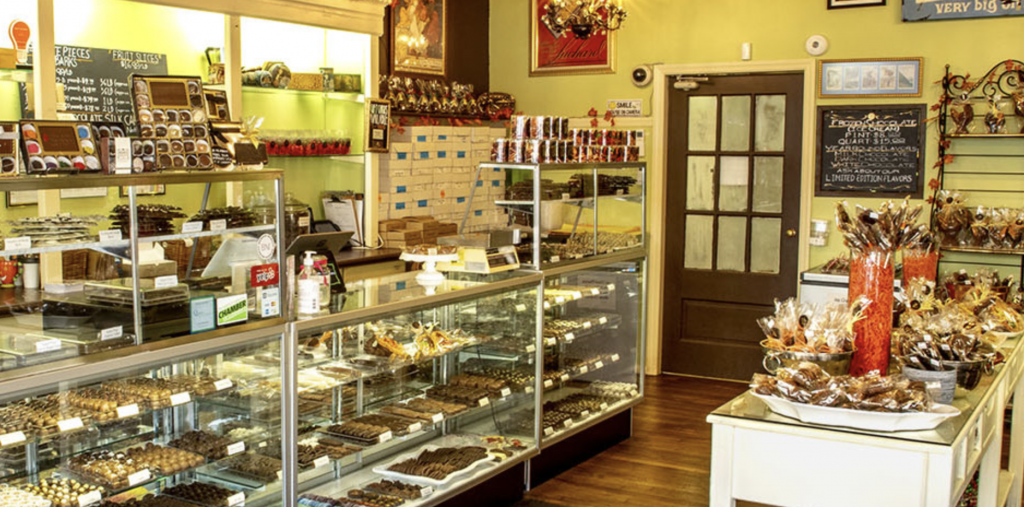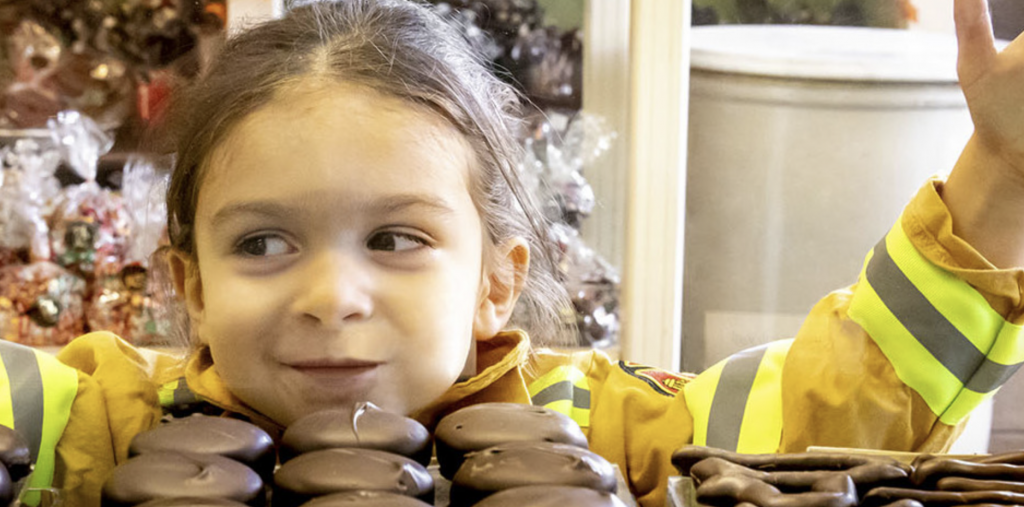How One Couple Saved A Century-Old Chocolate Shop
Learn how one couple's serendipitous New York City love story helped to save a century old chocolate shop
This article is more than 2 years old

New York City is an American emblem of hope, love, promise, and opportunity. People from across the nation flock to the concrete jungle just to get a taste of its ceaseless energy and feel the utter vibrancy that the streets themselves seem to imbue. Its buildings are cinematic symbols of the impossible both literally and figuratively. Who could forget that iconic scene in Sleepless In Seattle (1993) when Tom Hank’s and Meg Ryan’s character’s finally united atop the Empire State Building? Or how everyone wanted to find their own John Cusack after watching Serendipity (2004) for the first time? Movies are made in New York, lives are lived in New York, and love is found each and every day. One New York couple found their happy ending after fate thrust them together to save a century-old chocolate shop in Queens.
The couple, Mark Libertini and Rachel Kellner, shared their touching tale with ABC7. Libertini began by coyly remarking that the chocolate shop is important in this story, but it’s not how his and Kellner’s relationship started off. Libertini explained that he used to own a Tapas Bar in Bay Ridge, Brooklyn. During that time Kellner would frequent the restaurant and one night they struck up a conversation. Kellner made a comment that stuck with Libertini. “She had this idea of ‘food is therapy.’”, he said.
That idea, so simple yet so grand, is what planted the seed for their love to blossom. Kellner emotionally recalled, “It was this big, crazy idea, and here’s this person who I just met and he believed in me.” She didn’t know then that, that steadfast belief would ultimately help save a chocolate shop, but she did know that “That was the moment I fell in love with him even though I just met him.”
The idea that “food is therapy” served as the foundation for their relationship. However, Libertini and Kellner could never figure out just how to bring it to life. The two continued to date and their bond ultimately led them to get married, move out of Brooklyn, and into a place together in Queens. By that point, however, the concept that “food is therapy” had long been tabled and was collecting dust. It wasn’t until years later, and another serendipitous event that their idea of food being therapy resurged and a chocolate shop emerged.

On his commute home one day, Libertini stopped at a chocolate shop that he has noticed in Forest Hills, Queens, but upon trying to enter he realized that the quaint little store was closed. He called the number that was on the door and found that Aigner Chocolates, which had been a part of the local community for nearly 100 years, was up for sale. Libertini didn’t delay in saving the community pillar and making it his and Kellner’s own. It was after saving the iconic chocolate shop that the couple realized that they could finally bring their idea to life share their belief “food is therapy” with their local community.
“Our vision is to share our love for the art of making chocolate to make the world a better place, and we created that vision statement seven years ago, not knowing what the last two years were going to bring, “ said Kellner. She went on to emphasize that even though they had been exercising their mission in the years since acquiring their chocolate shop, it was the pandemic that really allowed her and Libertini’s vision to come full circle.

Through their chocolate shop, Libertini and Kellner came up with the Rainbow Bunny Exchange and Flower Power Fundraisers. Each fundraiser involved giving away free candy in exchange for a hand-drawn picture that provided hope to front-line workers during the worst of the pandemic. Collectively, Aigner Chocolates has since donated over $20,000 to charity. In a time of great distress this story really serves as a reminder that even when things are at their darkest a ray of light can be found, even if at first, you aren’t sure where to look. Mark Libertini put it best when he said “This business IS food is therapy. And we didn’t even know we were executing that concept.”






